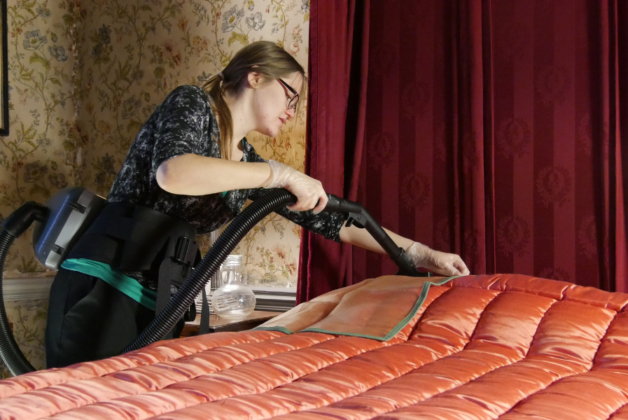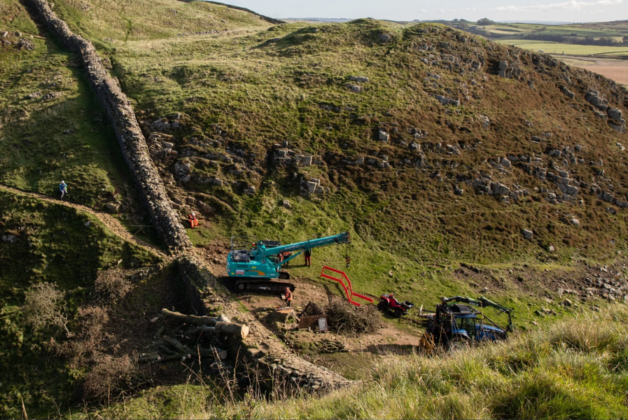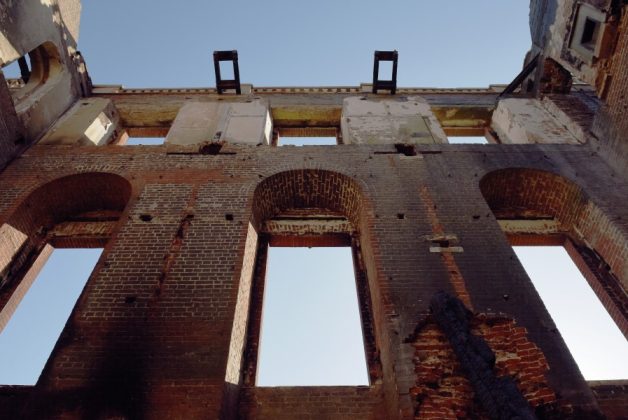Article: David Styles | Image: © National Trust Images/Penri Photography
An innovative application of hydro power has been employed by the National Trust to safeguard one of the first ever bibles translated into Welsh from water damage.
To protect ‘one of the most important books in Welsh history’ from irreparable damage, a turbine powered by pico hydroelectric power is being utilised for the first time by the National Trust.
The decision has been made in order to facilitate tighter humidity level controls for more than 200 historic translated bibles at the Tŷ Mawr Wybrnant site in North Wales.
Protecting centuries old artefacts is a hugely demanding task, even without increasingly volatile weather events and the rural location of the 16th century Tŷ Mawr Wybrnant farmhouse in Snowdonia.
The National Trust property is home to one of the first ever recorded bibles translated into Welsh; an artefact highly susceptible to damage from moisture in the air. The level of risk surrounding the bible’s future has only increased following recent spikes in rainfall, flooding and damp.
Gallery
“Earlier this year we experienced the worst flood at Tŷ Mawr Wybrnant in living memory and that extra moisture meant we needed to use more heating to ensure the humidity levels didn’t get too high,” Keith Jones, the National Trust’s climate change advisor, explained. “Climate predictions indicate likely increases in the severity and frequency of rainfall in the area. This small-scale technology is allowing us to adapt to future changes more sustainably.”
The shift to the renewable power source, which is specifically designed to be used in remote communities and is referred to as ‘pico’ due to the minimal quantity of electricity required to operate it, was deemed the best way to prevent disaster. As its name suggests water is key to the system and Tŷ Mawr Wybrnant will borrow the required amounts from a nearby stream.
“The hydro will only borrow a certain percentage of the water from the stream once the water levels reach a certain point. This means we are generating the electricity when we most need it, when there’s more moisture in the air after rainfall. The energy is consumed directly onsite, solely for the conservation of this priceless bible collection,” Jones added.
“We must reduce our impact on the climate, but we can harness the tools nature gives us to adapt to the challenges we are facing. At Tŷ Mawr Wybrnant, water is actually helping us solve a problem it’s creating in the first place, so there’s some kind of poetic justice there. We’ll be exploring how this principle could be used where other collections may be similarly at risk.”
There is a strong environmental case for the project, with the advent of hydro power usage at Tŷ Mawr Wybrnant predicted to lower the site’s greenhouse gas emissions by 5.2 tonnes of CO2 each year.
Tim Pye, the National Trust’s libraries curator, said the bible at Tŷ Mawr Wybrnant is a “hugely important part not only of the property’s story but of the history of the Welsh language,” before adding that “extreme weather is one of the threats to our collections, with sensitive and fragile objects like books, manuscripts and other documents especially susceptible to conditions such as damp.
“The energy-efficient and sustainable pico hydro solution for Tŷ Mawr Wybrnant will help greatly in its efforts to safeguard the bible collection for today’s and future generations to enjoy.”
Pico hydro power was officially switched on at the site last week, with Tŷ Mawr Wybrnant now closed for winter. The property and its humidity-controlled collection will re-open to visitors again in the spring.




